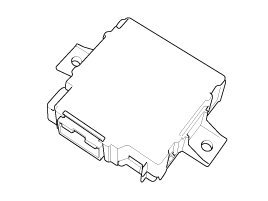 Kia Optima: TPMS Receiver. Description and Operation
Kia Optima: TPMS Receiver. Description and Operation
Description

| 1. |
Mode
| (1) |
Virgin State
| A. |
The receiver
as a sole part is shipped in this state. Replacement parts
should therefore arrive in this state. |
| B. |
In this state,
there is no Auto-Location, no sensor wake-up, no sensor
monitoring and no DTC monitoring.. |
| C. |
The state indicates
that platform specific parameters must be written to the
receiver and that sensors are un-learned. |
|
| (2) |
Normal State
| A. |
In order for
tire inflation state and DTC monitoring to occur, the receiver
must be in this state. |
|
|
| 2. |
Overview
| A. |
Auto-Learns new sensors. |
| B. |
Receives RF data from
sensor. |
| C. |
Uses sensor data to decide
whether to turn on TREAD Lamp. |
| D. |
Uses sensor information,
Auto-learn status, vehicle battery level, internal receiver states
to determine if there is a system or a vehicle fault. |
|
As manual for diagnosis methods by using diagnosis device, the main contents are
as follows:
1.
Connect self-diagnosis connector(16pins)
located in the lower of driver side crash pad to ...
Circuit Diagram
Connector pin number
Pin NO.
Discription
Remark
1
-
2
-
...
See also:
Schematic Diagrams
Schematic Diagram
CanisterThe Canister is filled with charcoal and absorbs evaporated
fuel vapor from the fuel tank. The gathered fuel vapor in canister is drawn
into the intake manifold b ...
Inspection
1.
The rear glass defogger switch
inputs can be checked using the GDS.
2.
To check the input value of rear
glass defogger switch, select option "Body Control Mod ...
Inspection
Rear Brake Disc Thickness Check
1.
Check the brake pads for wear
and fade.
2.
Check the brake disc for damage
and cracks.
3.
Remove all rust and contam ...
 Kia Optima: TPMS Receiver. Description and Operation
Kia Optima: TPMS Receiver. Description and Operation
 Diagnosis procedure by using diagnostic device
Diagnosis procedure by using diagnostic device TPMS Receiver. Schematic Diagrams
TPMS Receiver. Schematic Diagrams